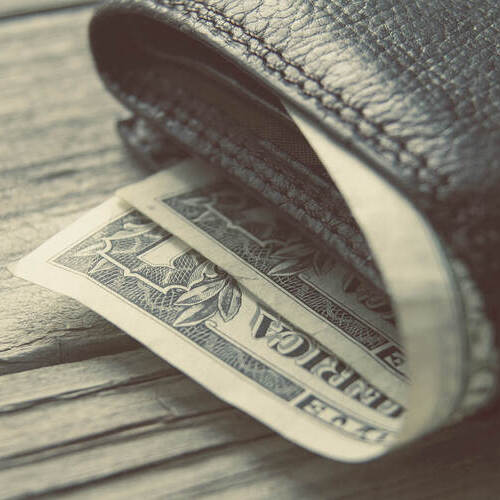Advertisers are constantly coming up with slogans and phrases that stick in your mind and help you recall their product. If you have seen any ads in recent times, you’ve probably heard the phrase “What’s in YOUR wallet?” This phrase, adopted as a byline for a large credit card processor, is designed to evoke the feeling that you need their credit card in order to tackle the challenges of life. Yet, the question itself begs a much deeper answer with implications for us to ponder.
Each of us has a certain balance in our bank account, a fixed amount of cash in our wallets, and a particular amount of credit for which we can borrow against at any point in time. Now it is true that some people have larger amounts than others, but we all have something in common here – our “wealth” at any given point in time can be measured. Some people are obsessed with constantly assessing their wealth, ensuring that every penny is accounted for, while others are only vaguely aware of what they possess and are happy when they find a five dollar bill in the couch cushions. Regardless of your personal disposition toward finances, the Bible tells us a lot about what is “in our wallets”. Here are just two thoughts to consider:
- You can’t CLAIM what is in your wallet. In fact, you can’t even claim the wallet as your own. Psalm 24:1 tells us that “The earth is the LORD'S, and the fulness thereof”. This means that everything you have, everything you claim as your own, has only been entrusted to you by God. Yes, you are the “owner” from the perspective of this world, but in reality they belong to God. You are His servant (or steward) who has been placed here to take care of the things that belong to Him. We get so wrapped up in trying to get more “stuff” that we sometimes forget this truth. Our thinking about wealth should be informed by Job when he said, “the LORD gave, and the LORD hath taken away; blessed be the name of the LORD” (Job 1:21). Put your attitude about this to the test the next time you have a financial loss and see if it lines up with Job’s. How would your giving to the Lord, your choice of entertainment, your spending decisions, and your way of life be affected if you truly grasped this foundational truth about the possessions you call your own?
- You shouldn’t LOVE what is in your wallet. This second truth goes hand-in-hand with the first one. Money is not the root of all evil, but the love of it will certainly lead us directly into the path of evil. We pursue wealth. We long after it. We want a better way of life. We want the extras in life. We want to keep up with the lifestyles of our friends. This love of money is a powerful force. It’s not how much you possess, but how much your wealth possesses you that matters. In fact, this love of money is such a powerful force that it leads us directly into the sin of covetousness. “While some coveted after, they have erred from the faith” (1 Timothy 6:10). As in the first century as well as today, the love and pursuit of money can easily and deceptively replace our love and pursuit of the things of the Lord.
So, instead of asking “What’s in Your Wallet”, maybe you should start asking “What’s in God’s Wallet?” What has God entrusted to you and how does He want you to spend it to further His kingdom? We need to love God more than money and be trusting Him to supply all of our needs. When we do that, we won’t be looking to our wallets for help – we will be looking to God above!

